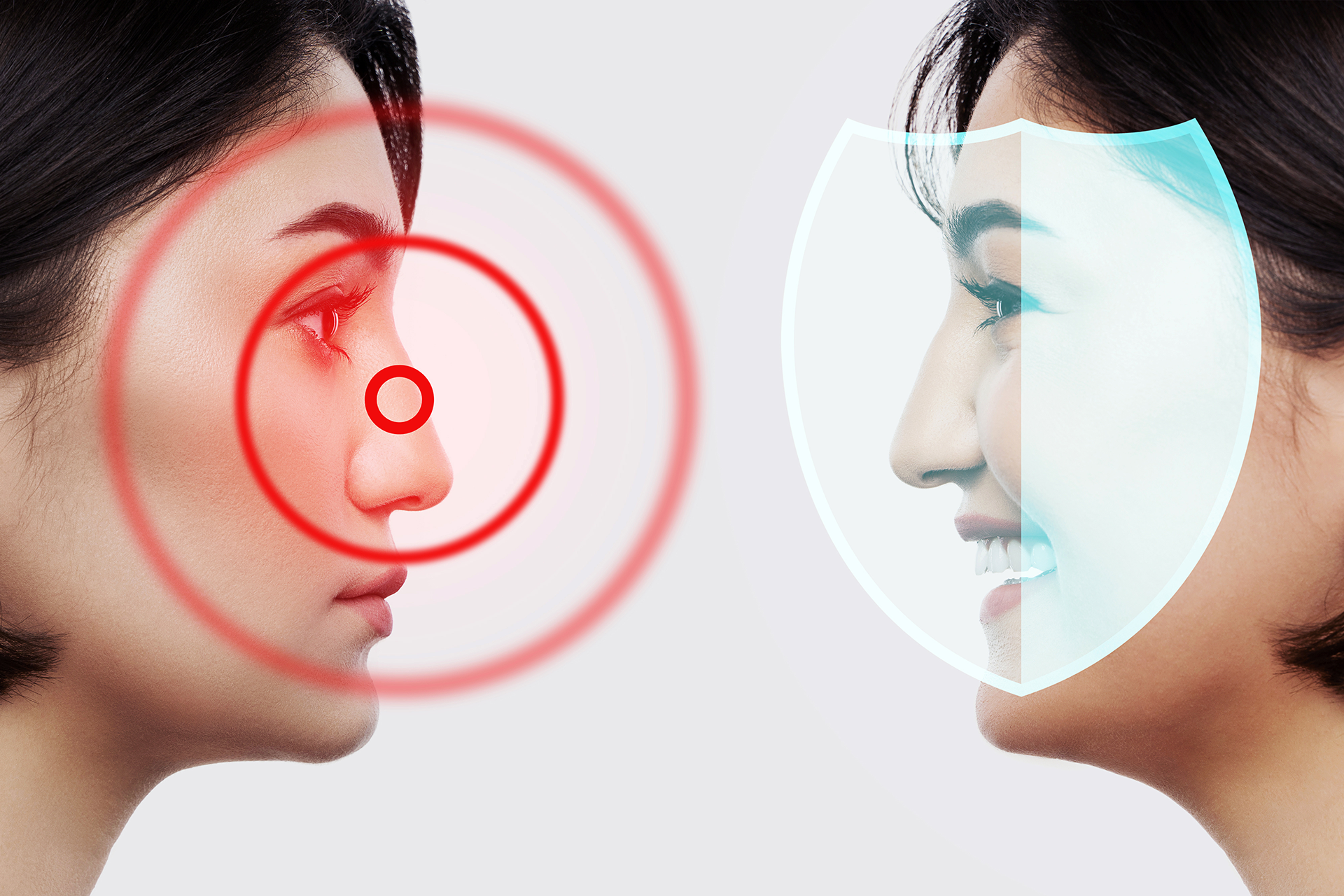Perennial allergies Perennial allergies occur throughout the year. Symptoms may include: Sneezing Itchy nose, roof of the mouth, throat, eyes and ears Runny nose Congestion Watery eyes Allergy testing They arise because of allergy to dust, pets and indoor [...]
Seasonal Allergies
draadmin2023-07-19T18:37:40+00:00Seasonal Allergies Seasonal allergies (or hayfever) occur during certain seasons, specifically spring, summer and fall. They arise from exposure to pollens and molds. Symptoms may include: Sneezing Itchy nose, roof of the mouth, throat, eyes and ears Runny nose Congestion Watery eyes [...]
Allergy Shots
draadmin2023-07-19T17:05:30+00:00Allergy Shots Allergy shots, or immunotherapy, provide an effective vaccination program that increases immunity to allergens that may trigger one’s allergy symptoms. Allergen immunotherapy involves administering gradually increasing amounts of an allergen to a patient over several months. The injections are first given on a weekly basis, and [...]
Asthma
draadmin2023-07-19T17:05:55+00:00Asthma Asthma is a chronic disease, that may be life-threatening if not identified and treated. It is caused by inflammation of the airways in the lungs. This inflammation makes the airways smaller and causes mucous production. These make it more difficult for air to move in and out [...]
Sinus Infections
draadmin2023-07-19T17:06:25+00:00Sinus Infections A sinus infections (also known as sinusitis) is a painful, long-lasting inflammation of the sinuses. Sinuses are the hollow cavities around the cheek bones found around the eyes and behind the nose. Symptoms of sinusitis include: Congestion Green or gray nasal discharge Postnasal [...]
Food Allergy
draadmin2023-07-19T17:06:52+00:00Food Allergy Perennial allergies occur throughout the year. Symptoms may include: Cow's milk Eggs Peanuts Wheat Soy Fish Shellfish Tree nuts Common causes Although these are the most common causes of food allergy, allergic reactions can [...]
Insect sting allergy
draadmin2023-07-19T17:07:22+00:00Insect sting allergy insect_stingIn most individuals, an insect sting means a little pain and discomfort. But some people may have trouble breathing, have hives all over their body or “swell” after being stung. These people may be allergic to insect stings. This means that their immune system overreacts [...]
Skin Allergies
draadmin2023-07-19T17:07:49+00:00Skin Allergies Skin allergies are painful and unpleasant. Symptoms of a skin allergy include: A strange rash Red, scaly or itchy skin A swelling of the deeper layers of the skin, such as the eyelids, mouth or genitals Dry, flaking skin Inflamed or [...]








